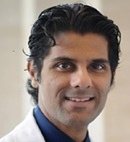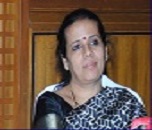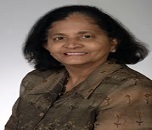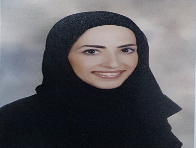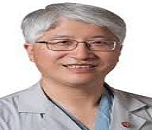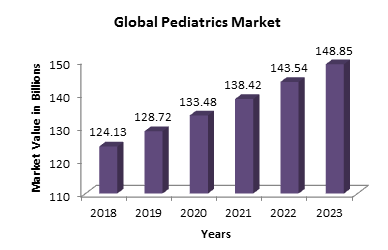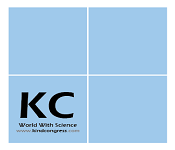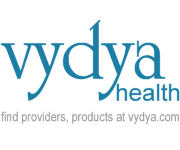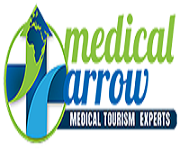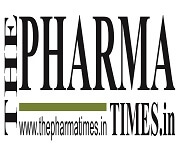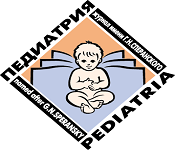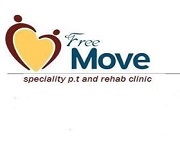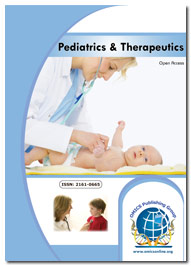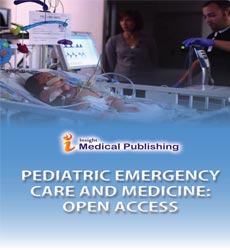Theme: Revitalizing Innovations in Pediatrics
WPC 2019
We are delighted to invite you to attend the 13th World Pediatric Congress scheduled to take place in Rome, Italy on December 05-06, 2019. The congress will be organized on the theme “Revitalizing Innovations in Pediatrics”. It is a great pleasure for us to welcome all the pediatricians, Neonatologists, Perinatologists, nurses, researchers, students and delegates to take part in this upcoming congress to share views and knowledge through interactive keynote, plenary, poster and B2B discussions in the field of pediatrics. This conference provides an excellent opportunity to establish research collaborations & networking, and to discuss the latest developments & challenges within the field.
Pediatrics is the branch of medicine associated with the development, medical care, and diseases of infants, neonates, children and adolescents from birth till adolescence. The goal of pediatrics is to reduce infant and child deaths rate, control the spread of infectious diseases, promote active lifestyles for a long disease-free life and help in simplifying the problems of children and adolescents with chronic conditions.
WPC 2019 will provide two days of robust discussions on methods and strategies related to diagnosis, prevention and management of pediatric diseases as well as explore new ideas and concepts on a global scale and the topics include Child Abuse & Behavioral Disorders, General Pediatrics, Neonatology & Perinatology, Pediatric Auto-immune Disorders, Pediatric Cardiology & Pulmonology, Pediatric Care & Nursing, Pediatric Dentistry, Pediatric Dermatology, Pediatric Endocrinology, Pediatric Gastroenterology & Hepatology, Pediatric Nephrology & Urology, Pediatric Neurology, Pediatric Nutrition, Pediatric Oncology & Radiology, Pediatric Surgery.
This congress will provide you an excellent platform to investigate the advancements in the field of Pediatrics. We cordially welcome you to Rome, Italy and we are sure you will have fruitful and memorable experience in science and tourism.
Track 01: Child Abuse & Behavioral Disorders
Child Abuse can be verbal, physical, emotional, or sexual. It is wide spread and can occur in any cultural, ethnic, or income group. It can result serious injury to the child and possibly even death. Generally child safety has been observed as a most interest matter to experts in particular social service well-being, physiological well- being and justice system.
Behavioral Disorders include issues in child’s learning, behaviour, and development stages. Because of these reasons parents are often suggested to take their kids for various mental health assessments and treatment. If these disorders are neglected in childhood, then it can adversely affect a person’s ability to grip a job and sustain in a relationships. Behavioural disorders are of two types such as: oppositional defiant disorder and conduct disorder. Behavioral disorders can be caused by social, biological, environmental and psychological factors.
Track 02: Adolescent & Child Psychology
From childhood to adulthood, Adolescence or the teenage is the transitional stage where the changes affects and confuses the child since they feel both a sense of disorientation and discovery. It is in this stage that a child is weakest mentally and emotionally and needs independence as well as a strong support since the issues they deal with in their day-to-day lives are sensitive. Identity issues, friendship, romantic interests, career, schoolwork, sexuality, social life, adventure, familial issues, sibling rivalry are some of the issues faced by teens everywhere. These issues need to be addressed timely as they tend to increase in importance during the transition into adulthood.
Proper addressing of these psychosocial, neurodevelopmental changes and emotional changes help in increasing cognitive and intellectual capacities including stronger reasoning skills, logical and moral and abstract thinking. The child and adolescent psychiatrist uses knowledge of psychological, biological and social factors in working with the patients.
Track 03: General Pediatrics
General Pediatrics is one of the largest division in the Department of Pediatrics that involves the medical care of infants, children, and adolescents provided by the General pediatricians who have general medical knowledge of how treatments affect different developmental growth stages of the infants. This division is dedicated to improve the health of children by performing clinical research and promoting the role of the general pediatrician as a provider of primary care and advocate for children and their families.
Track 04: Neonatology & Perinatology
Neonatology, usually practiced in neonatal intensive care units, is a subspecialty of paediatrics for taking care of newborn babies, sick babies, and premature babies. Neonatalogiests deals with special conditions like premature new born, or has serious disease, damage, birth absconds, intrauterine growth retardation, low birth weight, sepsis, pulmonary hypoplasia or birth asphyxia. They are trained specifically to deal with the most complex and high-risk situations.
Perinatology is concerned with the embryo and the complicated wellbeing circumstances during incubation period. A high-risk infant can be cared by a neonatologist after birth and by a perinatologiest before birth.
Track 05: Pediatric Auto-immune Disorders
The most common Autoimmune disorders, that children can develop, are Celiac disease, juvenile rheumatoid arthritis, and type 1 diabetes. These diseases in children are generally rare, but when they occur they can be challenging to diagnose and difficult to treat. The direct cause of most autoimmune disorders is still unknown. Whether a pregnant women could pass on her autoimmune disorder to her child or in some other way cause a child to have an autoimmune disorder In children? Some research revealed that genetic inheritance is a likely contributor of autoimmune disorders. If a pregnant woman has an autoimmune disorder, those antibodies can be passed through the placenta to the infant, who then will have the same antibodies for four to six months and may have symptoms.
Track 06: Pediatric Cardiology & Pulmonology
Pediatric Cardiology is a branch of medicine dealing with disorders of the heart as well as the circulatory system. It is a speciality that addresses heart conditions in babies, also in unborn babies, children, & teenagers. Pediatric cardiologists represent considerable specialization in cardiology. They deals with evaluating and caring for foetuses and neonates, infants, children, and adolescents. They work closely with pediatric heart surgeons to determine the best treatments and interventions.
Pediatric Pulmonology is related to treatment of children with diseases involving the respiratory tract. Some common pulmonary diseases include asthma, pneumonia, wheezing, bronchitis, acute respiratory distress syndrome, Sudden infant death syndrome, Cystic fibrosis, and Chronic obstructive pulmonary disease. Pediatric pulmonologists provide services like flexible fiboroptic bronchoscopy (FFB), Imaging studies, pulmonary function testing, Oxygen and carbon dioxide monitoring, Laryngoscopy, and Thoracentesis.
Track 07: Pediatric Care & Nursing
Pediatric Nursing includes the medical care of neonates and infants up to pre-adulthood. The responsibility of pediatric nurses is to regulate direct strategies and medications to infants as indicated by prescribed nursing care plans. Neonatal nurses focuses in giving support to new born premature babies, or experiencing medical issues, such as birth defects, diseases, or heart deformities. Neonatal nurses, work in Neonatal Intensive Care Unit (NICU), are trained in giving exceedingly specific medicinal care to the new-borns in risk.
Track 08: Pediatric Dentistry
Pediatric Dentistry is the branch of dentistry that deals with teeth and mouth condition of children. Pediatric Dentistry is an age-defined specialty that provides both primary and comprehensive preventive and therapeutic oral health care for infants and children through adolescence, including those with special health care needs. Paediatric dentistry is a specialty based not on a particular skill set, but encompassing all of dentistry's technical skills against a philosophical background of understanding child development in health and disease.
Track 09: Pediatric Dermatology
Pediatric Dermatology deals with the care of children with skin disorders, whether they are smooth or harsh, collected or genetic. Hair and nail treatments are also included. Pediatric Dermatologists are trained in dermatology and pediatrics. Along their definite knowledge of the demands of children's skin, they are also working hard with physicians in other specialties, including immunologists, rheumatologists, allergists, geneticists, surgeons and plastic surgeons.
Track 10: Pediatric Endocrinology
Pediatric Endocrinology is a subspecialty of pediatrics dealing with disorders of the endocrine glands including variations of physical growth and sexual development in childhood, and many more. It also includes the study of the most common types of diabetes are type 1 and type 2 diabetes. In children, there is an another type of diabetes called monogenic diabetes which is often misdiagnosed as type 1 or type 2 diabetes. Pediatric endocrinologists provides care for patients from infancy to late adolescence and young adulthood.
Track 11: Pediatric Gastroenterology & Hepatology
Pediatric Gastroenterology is the branch of medicine that associates with the investigation of gastrointestinal tract and Pediatric Hepatology is a branch of medicine which is concerned with the study, diagnosis, prevention and management of diseases that affect the liver, gallbladder, biliary tree and pancreas. It is a sub-speciality of pediatrics and gastroenterology. The very common diseases associates with Pediatric Gastroenterology are acute diarrhoea, persistent vomiting, gastritis, and difficulties with the development of the gastric tract. Neonatal Hepatitis (an inflammation of the liver) happens just in early stages, more frequently between one and two months after birth.
Track 12: Pediatric Nephrology & Urology
Pediatric Nephrology and urology is associated with the conditions affecting the kidneys, urethra, bladder, ureter, penis and testes. Pediatric nephrology is a speciality of medicine and paediatrics that worries about the kidneys. This division evaluates and treats hypertension, nephrolithiasis, proteinuria, haematuria, renal tubular acidosis, glomerulonephritis and kidney failure. Pediatric nephrologists treat children from new born through youthful adulthood with numerous infections. Pediatric Urology, which is a subspecialty of medicine, deals with the disorders of children's genitourinary systems. Pediatric urologists are giving their best to provide care for both guys and females from birth to early adult age. The very common problems are disorders of urination, reproductive organs and testes.
Track 13: Pediatric Neurology
Pediatric Neurology deals with the diagnosis and treatment of neurological conditions in neonates, newborn children and youths. Now-a-days researchers are busy in a variety of laboratory and clinical research programs to expand their understanding of the developing nervous system and pathologic processes that underlie neurological disorders in children. Pediatric Neurology is also deals with the diagnosis and treatment of diseases and disorders of spinal cord, brain, central and peripheral nervous system, autonomic nervous system muscles and blood vessels that affect individuals in these age groups. Pediatric Neurocritical Care is a new frontier to improve outcomes in critically ill pediatric patients with neurological illness.
Track 14: Pediatric Nutrition
Pediatric Nutrition deals with the maintenance of a proper well-balanced diet consisting of the essential nutrients and the adequate caloric intake. It is necessary for children not only to support their normal growth and development but also support their immune system. During growing years between infancy and adolescence, adequate nutrition is of utmost importance. Pediatric nutritional needs vary considerably with level of activity, age, & environmental conditions and they are directly related to the rate of growth. To build the baby’s immune system, breast Feeding has important ingredients that are not found in any infant formula.
Track 15: Pediatric Oncology & Radiology
Pediatric Oncology is a field in medicine which is concerned about diagnosing & treating children and young adults with tumour. The types of cancers that develop in children are different from cancers that develop in adults. Childhood cancers can develop because of DNA changes in cells that occur in early life, even before birth. The most common childhood cancer types include leukemia, brain & spinal cord tumour, lymphoma & Neuroblastoma. The treatment of childhood cancer relies upon a few factors, including the type stage and of cancer, possible side effects, the family's preferences, and the child’s overall health. Despite fortunate treatment of many children, there is a high death rate still connected with different types of malignancies.
Pediatric Radiology deals with the imaging of fetuses, infants, children, adolescents, and young adults. It is a subspecialty of radiology which is concerned with the new findings & progress in pediatric imaging area.
Track 16: Pediatric Surgery
Pediatric Surgery includes all the surgical operations of foetuses, babies, adolescents, children, and young adults. Pediatric surgery can be mainly divided in to two sub categories known as neonatal surgery and foetal surgery. A pediatric surgeon is responsible for the treatment of many disorders through surgical operations in children and playing vital role in saving lives at birth stage by new-born and foetal surgery. pediatric surgery includes pediatric neurosurgery, pediatric nephrological surgery, pediatric cardiothoracic surgery, pediatric hepatological surgery, pediatric urological surgery, pediatric orthopedic surgery, pediatric cardiothoracic surgery, pediatric oncological surgery. and pediatric vascular surgery.
13th World Pediatric Congress -2019 welcomes attendees, presenters, and exhibitors from all over the world to Rome. We are delighted to invite you all to register and attend for the “13th World Pediatric Congress (WPC 2019)” which is going to be held during December 05-06, 2019 in Rome.
The organizing committee is set up for an exciting and informative conference program including plenary lectures, symposia, workshops on a variety of topics, poster presentations and various programs for participants from all over the world. We invite you to join us at the WPC 2019, where you will be sure to have a meaningful experience with scholars from around the world. All members of the WPC 2019 organizing committee look forward to meeting you in Rome.
Scope and Importance:
All over the world, parents are becoming more conscious about the health of their children. As a result, globally the paediatrics market is growing at a significant pace with companies scrambling to get a significant share of the market.
The global market for paediatrics is accounted to approximately $124.13 billion in 2018 and expected to grow at 3.7% CAGR from the current value of 128.72 billion in 2019 to 148.85 billion in 2023.
Conference Highlights
- Child Abuse & Behavioral Disorders
- General Pediatrics
- Neonatology & Perinatology
- Pediatric Auto-immune Disorders
- Pediatric Cardiology & Pulmonology
- Pediatric Care & Nursing
- Pediatric Dentistry
- Pediatric Dermatology
- Pediatric Endocrinology
- Pediatric Gastroenterology & Hepatology
- Pediatric Nephrology & Urology
- Pediatric Neurology
- Pediatric Nutrition
- Pediatric Oncology & Radiology
- Pediatric Surgery
- Adolescent & Child Psychology
To share your views and research, please click here to register for the Conference.
To Collaborate Scientific Professionals around the World
| Conference Date | December 05-06, 2019 | ||
| Sponsors & Exhibitors |
|
||
| Speaker Opportunity Closed | Day 1 | Day 2 | |
| Poster Opportunity Closed | Click Here to View | ||
Useful Links
Special Issues
All accepted abstracts will be published in respective Our International Journals.
- Clinical Pediatrics: Open Access
- Journal of Pediatrics & Therapeutics
- Pediatric Emergency Care and Medicine
Abstracts will be provided with Digital Object Identifier by






